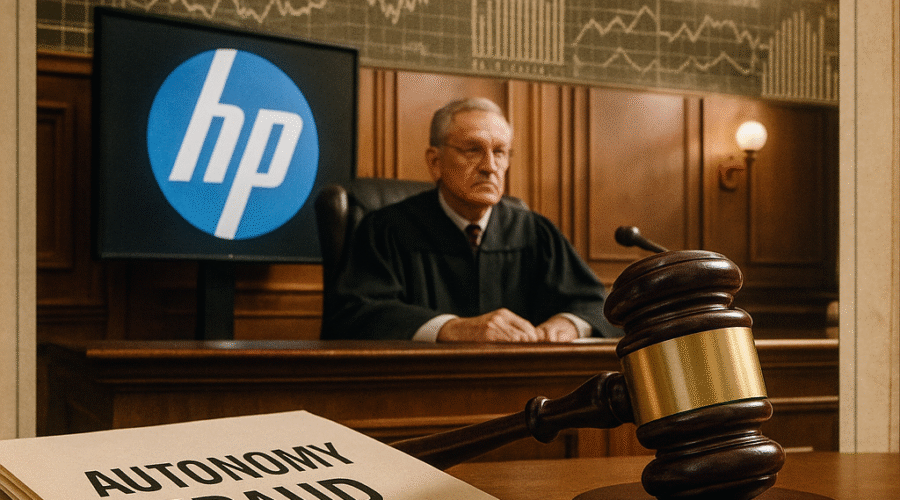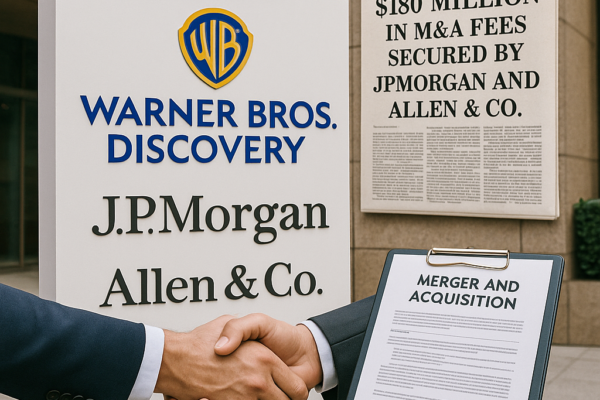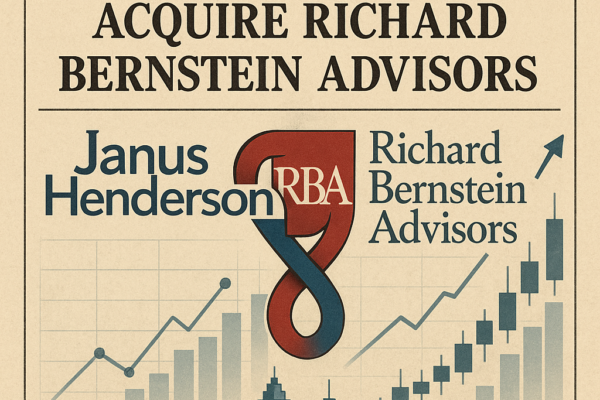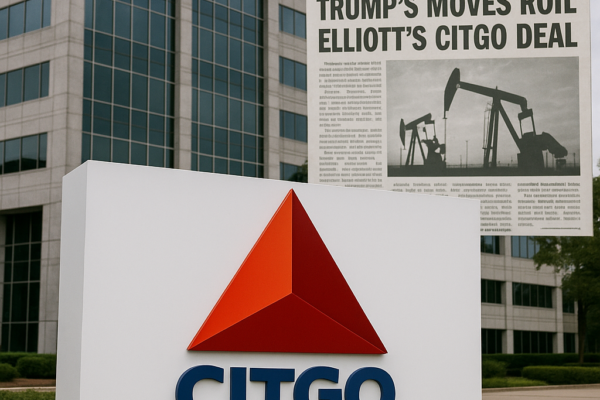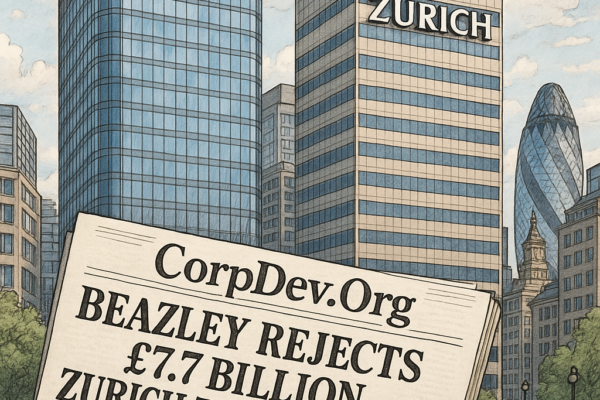In a landmark ruling with far-reaching implications for technology mergers and acquisitions, the UK High Court has ordered the estate of deceased Autonomy founder Mike Lynch to pay Hewlett Packard Enterprise $945 million in damages. The July 22, 2025 judgment culminates a 14-year legal battle stemming from HP’s ill-fated $11.1 billion acquisition of Autonomy in 2011, which resulted in an $8.8 billion write-down within a year. Justice Robert Hildyard’s meticulously calculated award—while substantially below HP’s initial $4 billion claim—represents one of the largest damages settlements in UK corporate history and establishes critical precedents for financial misrepresentation claims in cross-border transactions. The ruling underscores systemic vulnerabilities in pre-acquisition due diligence processes while highlighting the legal risks for executives who misrepresent financial performance during M&A negotiations.
💼 M&A / PE diligence in 24 hours? Yes, thanks to AI!
Case Background: The Autonomy Acquisition and Its Aftermath
The Ill-Fated Transaction
Hewlett-Packard’s acquisition of UK-based Autonomy Corporation in October 2011 represented one of the largest European software deals at the time, positioned as a strategic pivot toward high-margin enterprise software. Autonomy specialized in data analysis and pattern recognition software, with founder Mike Lynch heralded as “Britain’s Bill Gates” following the transaction. The $11.1 billion purchase price represented an 80% premium over Autonomy’s market capitalization, signaling HP’s confidence in Autonomy’s reported financial performance and growth trajectory[5][11][21]. Within months, however, internal whistleblowers alerted HP management to accounting irregularities, triggering an internal investigation that revealed what HP would later characterize as “an elaborate fraud to inflate Autonomy’s value”[5][16].
Accounting Irregularities and Write-Down
Forensic accounting reviews identified three primary categories of financial misrepresentation: improper revenue recognition through backdated contracts and round-trip transactions, miscategorization of hardware sales as software revenue, and aggressive capitalization of research and development costs[10]. These practices allegedly inflated Autonomy’s apparent value by approximately 40-50% according to HP’s internal analysis. The discovery prompted HP to take an unprecedented $8.8 billion write-down in November 2012, with then-CEO Meg Whitman attributing $5 billion specifically to “accounting improprieties, misrepresentations and disclosure failures”[10][14]. This valuation collapse triggered shareholder lawsuits and regulatory investigations across multiple jurisdictions, setting the stage for protracted legal battles.
Legal Proceedings: From Criminal Charges to Civil Damages
Criminal and Civil Litigation Timeline
The legal fallout unfolded across parallel tracks in the United States and United Kingdom. In 2015, HP filed a $5 billion civil suit against Lynch and former Autonomy CFO Sushovan Hussain in London’s High Court, alleging violations of the UK Financial Services and Markets Act (FSMA) along with common law deceit[8][11]. Simultaneously, US federal prosecutors brought criminal fraud charges against both executives in 2018, resulting in Hussain’s conviction and 5-year prison sentence. Lynch faced extradition and a high-profile US trial where he was acquitted of all criminal charges in March 2024[1][7]. The civil case continued through a nine-month liability trial in 2019, culminating in Justice Hildyard’s 2022 ruling that Lynch and Hussain were liable for fraudulent misrepresentation[4][8][9].
Damages Calculation Methodology
Justice Hildyard’s 147-page ruling details an exceptionally complex damages assessment framework centered on reconstructing Autonomy’s “true position” absent fraudulent misrepresentation. The court employed a “no-transaction counterfactual” model comparing the actual acquisition price against Autonomy’s hypothetical value based on accurate financial reporting[4][7]. Critical to this calculation was determining: 1) The appropriate valuation multiples for enterprise software firms in 2011; 2) Revenue adjustments removing improperly recognized income; 3) Operating margin corrections; and 4) Growth rate projections absent inflated metrics. After reviewing conflicting expert testimony from financial analysts and forensic accountants, the court established a revised valuation of approximately $10.1 billion—$1 billion below the actual purchase price—resulting in the £646 million ($871 million) FSMA award[4][5][7]. Additional damages for deceit (£51.7 million) and subsidiary losses brought the total to £700 million ($945 million at current exchange rates).
Judicial Findings and Rationale
Fraud Liability Determination
Justice Hildyard’s liability findings centered on three pillars of evidence: internal Autonomy emails demonstrating awareness of accounting irregularities, forensic accounting reconstruction of financial statements, and testimony from former Autonomy sales personnel describing pressure to backdate contracts. The court rejected Lynch’s defense that HP failed to conduct adequate due diligence, noting that “the principle of caveat emptor does not apply when financial representations are materially false”[8]. Particularly damning was evidence that Autonomy executives created “round-trip” transactions with value-added resellers, recording revenue while simultaneously providing secret rebates through marketing agreements[10]. The court found these practices systematically inflated reported revenue by 12-15% annually from 2009-2011, directly contradicting Autonomy’s representations during due diligence.
Rejection of HP’s $4 Billion Claim
Despite affirming fraud liability, Justice Hildyard sharply criticized HP’s damages model as “substantially exaggerated” and “not based on detailed analysis”[7]. The court noted HP’s $5 billion fraud attribution in its 2012 write-down announcement appeared “predominantly calibrated by reference to the perceived need to reduce carrying value” rather than forensic valuation[7]. Specifically, the judgment rejected HP’s argument that it would have abandoned the acquisition entirely had accurate financials been available, noting documentary evidence that HP executives considered Autonomy’s technology “almost magical” and strategically essential regardless of valuation[8]. This finding proved pivotal in limiting damages to the differential between actual and fair value rather than the entire transaction value.
Broader Implications for M&A Practice
Due Diligence Protocols
The Autonomy case exposes critical vulnerabilities in acquisition due diligence, particularly for technology companies with complex revenue recognition models. Justice Hildyard’s ruling establishes that buyers cannot rely solely on audited financial statements, noting that Autonomy’s accounts received unqualified opinions from a Big Four auditor despite material misstatements[10]. The judgment implicitly endorses three enhanced diligence practices: 1) Transaction-level testing of revenue recognition beyond sample-based audits; 2) Forensic examination of relationships with key resellers; and 3) Multi-sourced growth rate validation. These protocols are particularly crucial for software companies where revenue recognition rules permit significant judgment, creating opportunities for aggressive accounting[10].
Representation and Warranty Insurance
The case highlights limitations in representation and warranty insurance policies common in large transactions. HP’s inability to recover most losses through such policies—despite clear misrepresentations—stems from standard exclusions for intentional fraud and accounting irregularities known to target company executives. This creates a coverage gap precisely where buyers face greatest financial exposure. Post-Autonomy, leading insurers now require enhanced fraud diligence including: 1) CFO and controller representations about accounting controls; 2) Expanded auditor access; and 3) Third-party forensic accounting reviews for transactions exceeding $500 million.
Executive Liability Exposure
The ruling establishes that personal liability for acquisition-related misrepresentations extends beyond closing through estate proceedings, creating unprecedented executive risk. Lynch’s estate—valued at approximately $640 million—faces potential insolvency from the $945 million judgment[1][7]. This precedent may fundamentally alter executive behavior during sale processes, with heightened focus on: 1) Conservative accounting positions; 2) Comprehensive disclosure schedules; and 3) Personal legal counsel during negotiations. The extension of liability to estates also creates complex estate planning challenges for founders contemplating company sales.
Financial and Strategic Consequences
HP’s Recovery Prospects
While the $945 million award represents a partial victory, HP faces significant collection challenges. Lynch’s estate—administered by Jeremy Sandelson—holds primarily illiquid assets including real estate, private equity investments, and intellectual property rights[9]. The estate’s statement indicates plans to appeal both liability and damages determinations, potentially delaying recovery for years[1][7]. Even if upheld, the judgment exceeds the estate’s reported $640 million value, creating potential recovery shortfalls exceeding $300 million. This contrasts with Hussain’s separate settlement earlier in 2025, terms of which remain confidential[5][16].
Market Impact and Investor Reactions
The ruling provides limited financial upside for HP investors relative to the acquisition’s total value destruction. The $945 million potential recovery represents just 11% of the $8.8 billion write-down and 2.4% of HP’s current market capitalization. Analyst assessments suggest the verdict’s greatest value lies in establishing deterrent precedents rather than financial recovery. Technology M&A advisors report immediate deal flow impacts, with buyers increasing escrow requirements by 30-50% for software
Sources
https://www.newser.com/story/372300/judge-orders-mike-lynchs-estate-to-pay-nearly-1b-to-hp.html, https://www.thedailybeast.com/tech-tycoon-mike-lynchs-estate-ordered-to-pay-hp-945m-after-he-drowned-on-yacht/, https://www.thedailybeast.com/tech-tycoon-mike-lynchs-estate-ordered-to-pay-hp-945m-after-he-drowned-on-yacht/, https://www.judiciary.uk/wp-content/uploads/2025/07/Autonomy-Corporation-and-others-v-Lynch-and-others.pdf, https://www.the-independent.com/news/uk/home-news/mike-lynch-hp-court-ruling-b2793604.html, https://www.thedailybeast.com/tech-tycoon-mike-lynchs-estate-ordered-to-pay-hp-945m-after-he-drowned-on-yacht/, https://www.theregister.com/2025/07/22/mike_lynch_hpe_damages/, https://www.goodwinlaw.com/en/insights/publications/2022/02/02_09-key-issues-from-a-summary-of-the, https://www.judiciary.uk/judgments/autonomy-corporation-and-others-v-lynch-and-others/, https://business.wisc.edu/centers/nicholas/blog/hewlett-packard-auditing-implications-of-the-autonomy-acquisition/, https://www.tradingview.com/news/reuters.com,2025:newsml_L8N3TI1AG:0-uk-court-to-rule-on-how-much-hp-owed-by-late-mike-lynch-s-estate-over-autonomy-deal/, https://www.thedailybeast.com/tech-tycoon-mike-lynchs-estate-ordered-to-pay-hp-945m-after-he-drowned-on-yacht/, https://today.westlaw.com/Document/I17797a7066e011f0a3aed5ef3a2c7b43/View/FullText.html?transitionType=CategoryPageItem&contextData=%28sc.Default%29, https://www.alphaspread.com/market-news/mergers-acquisitions/hp-awarded-nearly-1-billion-over-autonomy-acquisition-dispute-uk-court-rules, https://www.thedailybeast.com/tech-tycoon-mike-lynchs-estate-ordered-to-pay-hp-945m-after-he-drowned-on-yacht/, https://www.marinelink.com/blogs/blog/uk-court-mike-lynchs-estate-owes-hp-over-940-million-to-an-103052, https://www.thedailybeast.com/tech-tycoon-mike-lynchs-estate-ordered-to-pay-hp-945m-after-he-drowned-on-yacht/, https://today.westlaw.com/Document/I17797a7066e011f0a3aed5ef3a2c7b43/View/FullText.html?contextData=%28sc.Default%29&transitionType=Default, https://www.marinelink.com/blogs/blog/uk-court-mike-lynchs-estate-owes-hp-over-940-million-to-an-103052, https://www.thedailybeast.com/tech-tycoon-mike-lynchs-estate-ordered-to-pay-hp-945m-after-he-drowned-on-yacht/, https://www.tradingview.com/news/reuters.com,2025:newsml_L8N3TI1AG:0-uk-court-to-rule-on-how-much-hp-owed-by-late-mike-lynch-s-estate-over-autonomy-deal/, https://www.thedailybeast.com/tech-tycoon-mike-lynchs-estate-ordered-to-pay-hp-945m-after-he-drowned-on-yacht/, https://www.thedailybeast.com/tech-tycoon-mike-lynchs-estate-ordered-to-pay-hp-945m-after-he-drowned-on-yacht/

